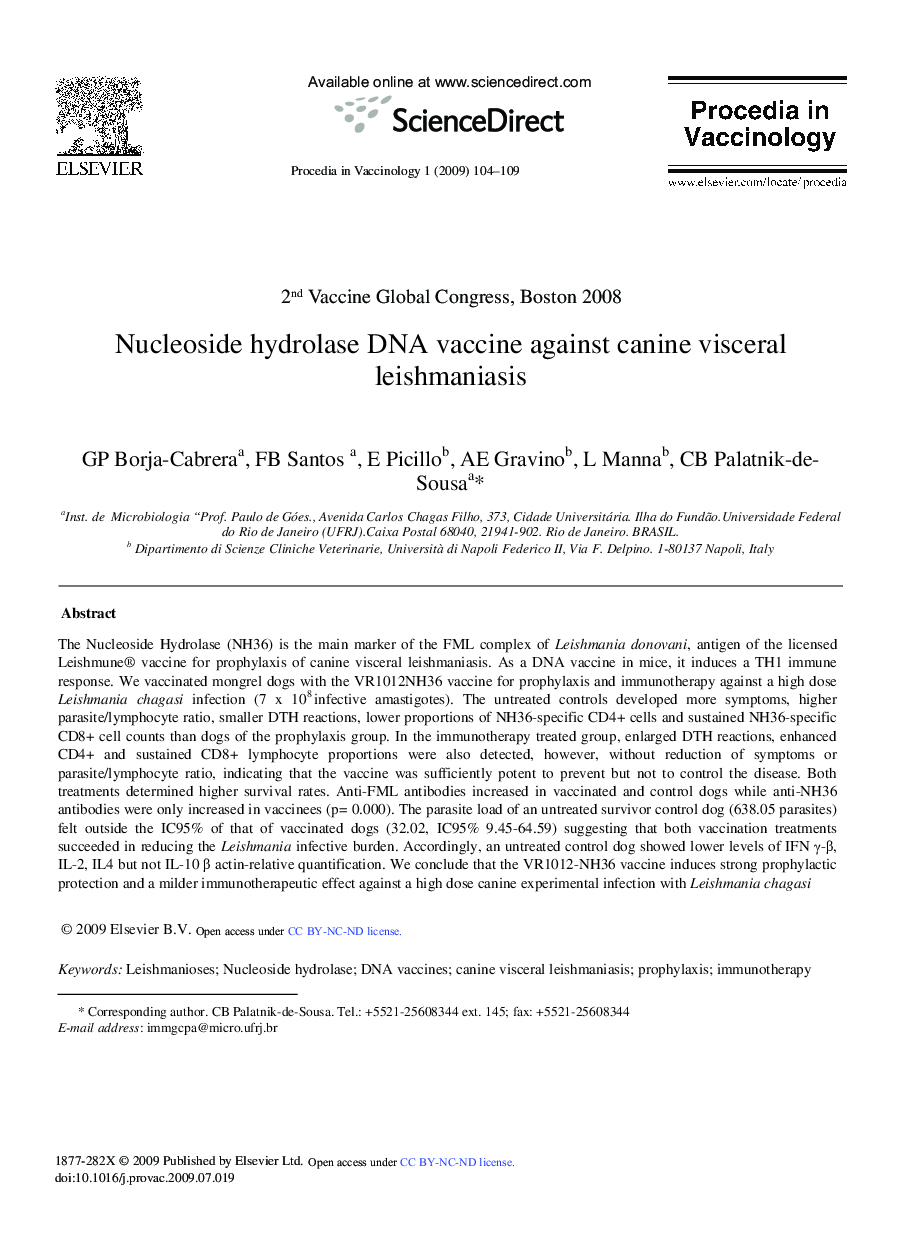| Article ID | Journal | Published Year | Pages | File Type |
|---|---|---|---|---|
| 2473865 | Procedia in Vaccinology | 2009 | 6 Pages |
The Nucleoside Hydrolase (NH36) is the main marker of the FML complex of Leishmania donovani, antigen of the licensed Leishmune® vaccine for prophylaxis of canine visceral leishmaniasis. As a DNA vaccine in mice, it induces a TH1 immune response. We vaccinated mongrel dogs with the VR1012NH36 vaccine for prophylaxis and immunotherapy against a high dose Leishmania chagasi infection (7 x 108 infective amastigotes). The untreated controls developed more symptoms, higher parasite/lymphocyte ratio, smaller DTH reactions, lower proportions of NH36-specific CD4+ cells and sustained NH36-specific CD8+ cell counts than dogs of the prophylaxis group. In the immunotherapy treated group, enlarged DTH reactions, enhanced CD4+ and sustained CD8+ lymphocyte proportions were also detected, however, without reduction of symptoms or parasite/lymphocyte ratio, indicating that the vaccine was sufficiently potent to prevent but not to control the disease. Both treatments determined higher survival rates. Anti-FML antibodies increased in vaccinated and control dogs while anti-NH36 antibodies were only increased in vaccinees (p= 0.000). The parasite load of an untreated survivor control dog (638.05 parasites) felt outside the IC95% of that of vaccinated dogs (32.02, IC95% 9.45–64.59) suggesting that both vaccination treatments succeeded in reducing the Leishmania infective burden. Accordingly, an untreated control dog showed lower levels of IFN γ-β, IL-2, IL4 but not IL-10 β actin-relative quantification. We conclude that the VR1012-NH36 vaccine induces strong prophylactic protection and a milder immunotherapeutic effect against a high dose canine experimental infection with Leishmania chagasi.
